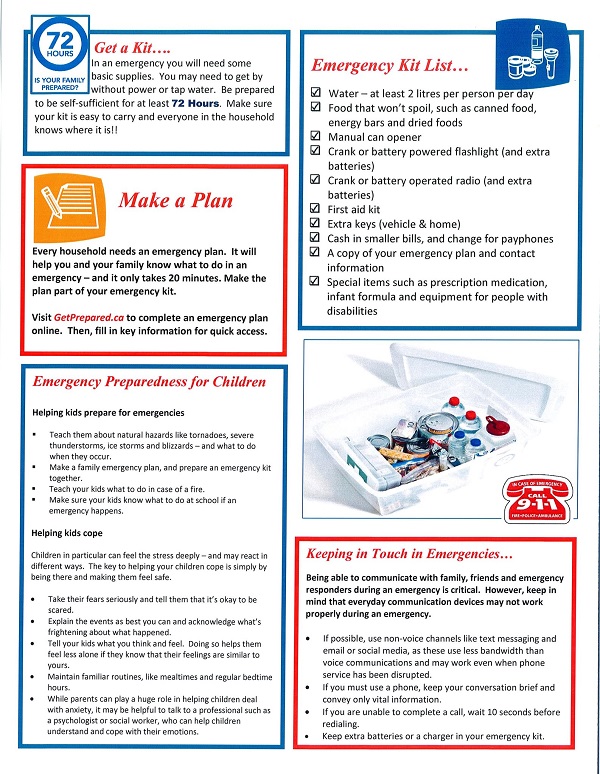This week from May 7 to 13 is Emergency Preparedness Week across Canada.
It couldn’t come at a better time with much of northern Saskatchewan and parts of Alberta dealing with massive forest fires.
Even though Emergency Preparedness Week only happens once a year, the City of Moose Jaw’s Emergency Measures Operation Coordinator (EMO), Mike Russell says that people should always be ready for a natural disaster to strike.
“One of the biggest things that we’re trying to tell the public now is to make yourself educated," says Russell. "There is so much resource material out that it doesn’t just have to be this week that we talk about it. The Canadian government and the province have such great literature on what you can do to get prepared.”
Natural disasters could be flooding, tornadoes, windstorms, fires, etc.
To be ready for if or when disaster strikes Russell explains that residents should have a 72-hour kit that contains several items to keep their family safe.
“Whether you’re having non-perishable food, a clock that works, making sure phones are charged, a can opener, a flashlight and batteries, and water for beyond 72 hours. The approach is to make sure you’re prepared for the first 72 [hours] and beyond.”
Beyond a 72-hour kit, another way to be prepared is to have an emergency plan in place.
“Part of that plan is, what do we have in place if we have to hunker down for the next 72 [hours] or beyond? If we’re relocating, where are we going to go if we’re not going to a provided shelter, do we have an alternative place to shelter? How are we getting there? What are we doing and what are we taking with us?”
Residents should also consider a plan for what they will be doing with pets or livestock.
When making an emergency plan, Russell wanted to stress the importance of letting other people know your plan as well.
“Sharing that plan with family members and if they’re worried, they have an understanding of what you’re doing.”
Russell adds that if caught in a natural disaster, to use social media as much as possible to connect with family or friends.
“We don’t want to overload the network and systems. When you’re being relocated try to use social media and texting as opposed to actual phone calls because the phone lines could be down or tied up.”
One last thing is to help your child or children prepare for emergencies. Teach them about natural hazards like tornadoes, severe thunderstorms, ice storms, and blizzards and what to do when they occur.
In addition, teach them what to do in case of a fire and what to do at school if an emergency happens.
Full a detailed emergency preparedness checklist below:
 Photo credit: Moose Jaw Fire Department/Facebook
Photo credit: Moose Jaw Fire Department/Facebook

















